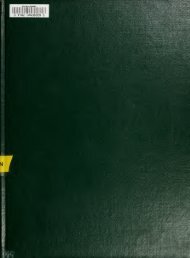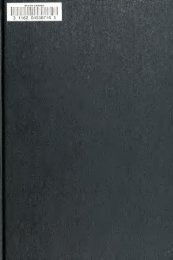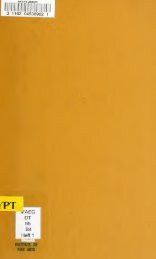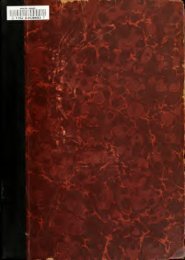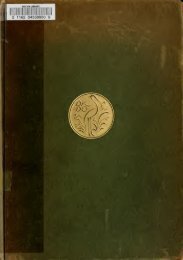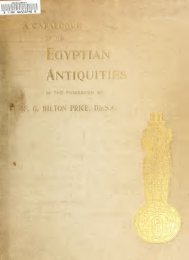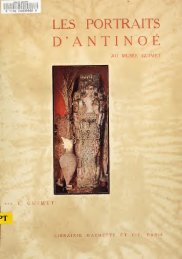When a Reporter Is an Uninvited Guest - New York University
When a Reporter Is an Uninvited Guest - New York University
When a Reporter Is an Uninvited Guest - New York University
Create successful ePaper yourself
Turn your PDF publications into a flip-book with our unique Google optimized e-Paper software.
April 26, 2013, 9:02 am<br />
<strong>When</strong> a <strong>Reporter</strong> <strong>Is</strong> <strong>an</strong> <strong>Uninvited</strong> <strong>Guest</strong><br />
By MARGARET SULLIVAN<br />
The <strong>New</strong> <strong>York</strong> Times<br />
Journalism has a long <strong>an</strong>d much debated history of articles reported either undercover or without<br />
complete representation — one came to light this month involving some BBC reporters <strong>an</strong>d a<br />
trip to North Korea.<br />
Often, there is a bal<strong>an</strong>ce between revealing that one is a reporter <strong>an</strong>d being able to get the full<br />
story. It’s not black <strong>an</strong>d white, <strong>an</strong>d m<strong>an</strong>y factors are at play. <strong>Is</strong> the story import<strong>an</strong>t? Are there<br />
other ways to get the same information? <strong>Is</strong> the privacy of average citizens invaded?<br />
Here’s a minor case study. Eric Lipton, who writes about ethics <strong>an</strong>d lobbyists as <strong>an</strong> enterprise<br />
reporter in the Washington bureau, was working on <strong>an</strong> article about former aides to Senator Max<br />
Baucus, a Democrat from Mont<strong>an</strong>a, who became lobbyists, when he learned about a gathering at<br />
a Capitol Hill town house owned by Federal Express. It would include lobbyists, some of them<br />
former aides to Mr. Baucus, the powerful chairm<strong>an</strong> of the Senate Fin<strong>an</strong>ce Committee.<br />
The meeting was not open to the press or the public, but Mr. Lipton decided to attend, <strong>an</strong>yway.<br />
“Politici<strong>an</strong>s <strong>an</strong>d lobbyists speak very differently in private settings th<strong>an</strong> when they’re with<br />
reporters,” Mr. Lipton told me last week. “It’s impossible to hear them speaking in <strong>an</strong><br />
unvarnished way without going to these events.”<br />
This gathering, he said, “was <strong>an</strong> opportunity to hear them.”<br />
<strong>When</strong> a staff member at the event first asked him for his name, he simply said, “Eric.” A few<br />
minutes later, after he had heard some of the remarks, he was asked for further identification. He<br />
then gave his full name <strong>an</strong>d affiliation with The Times <strong>an</strong>d was asked to leave, which he did.<br />
Over the next week or so, he wrote about the former aides to Senator Baucus.<br />
He used a small amount of material he had recorded at the event: a quotation from Paul Wilkins,<br />
Mr. Baucus’s chief of staff. Mr. Wilkins said that the donations <strong>an</strong>d fund-raising from those<br />
attending the event would be vital to Mr. Baucus’s re-election efforts. (It was <strong>an</strong>nounced this<br />
week that, with nearly $5 million raised, Mr. Baucus would not run for re-election after all.)<br />
A paragraph in Mr. Lipton’s article read:<br />
“It allows us to scare off opponents,” Mr. Wilkins told the group, which included former<br />
Baucus aides turned lobbyists, at a Capitol Hill townhouse owned by Federal Express. “It is the<br />
basis of everything that we do. So th<strong>an</strong>k you for your support <strong>an</strong>d everything you have done for<br />
Senator Baucus.” A <strong>New</strong> <strong>York</strong> Times reporter in attend<strong>an</strong>ce was asked to leave the private event.
Se<strong>an</strong> Neary, a spokesm<strong>an</strong> for Mr. Baucus, wrote to me about what had happened, charging <strong>an</strong><br />
ethical violation. He quoted The Times’s ethics policy, which states that reporters must treat<br />
news sources “fairly <strong>an</strong>d professionally.”<br />
Mr. Neary said in his e-mail, “That was certainly not the case here.”<br />
He added, “Now while there may not be <strong>an</strong>ything illegal in what Eric did, I would think you<br />
could question his journalistic integrity.”<br />
Mr. Neary raises valid questions <strong>an</strong>d his complaint is not frivolous.<br />
Attending the event, Mr. Lipton told me, was “a delicate thing — it was a little uncomfortable.”<br />
But he added that it was import<strong>an</strong>t to get beyond what politici<strong>an</strong>s <strong>an</strong>d their staff members were<br />
willing to say publicly. “What they tell me is so guarded <strong>an</strong>d so vetted <strong>an</strong>d so carefully calibrated<br />
that you w<strong>an</strong>t to listen to them speaking in a private setting as well,” he said.<br />
What he heard at the gathering, he said, “undermines the suggestion that there is not a reciprocal<br />
relationship between lobbyists <strong>an</strong>d politici<strong>an</strong>s.”<br />
The use of the quotation was discussed by Times editors, including Philip B. Corbett, associate<br />
m<strong>an</strong>aging editor for st<strong>an</strong>dards. He told me that the situation was not ideal but that, given the<br />
circumst<strong>an</strong>ces, “I didn’t think it violated our st<strong>an</strong>dards.” Mr. Lipton did not lie about who he<br />
was, left when asked to leave <strong>an</strong>d, more import<strong>an</strong>t, was appropriately aggressive in pursuit of a<br />
story that matters to citizens, Mr. Corbett said.<br />
The gathering Mr. Lipton attended was a classic example of Washington at work. Here was the<br />
chief of staff to Mr. Baucus, the chairm<strong>an</strong> of <strong>an</strong> influential committee, offering major donors to<br />
his boss <strong>an</strong> update on Mr. Baucus’s effort to raise millions of additional campaign dollars. A<br />
part of that would come from the lobbyists (some of whom were former aides, with all the access<br />
that brings) at a Capitol Hill gathering. And here, too, was the way political people talk when<br />
they don’t think the general public or the press is listening. As a citizen, I’m interested, <strong>an</strong>d I<br />
think m<strong>an</strong>y other Times readers are, too. The Wilkins quotation may not have been necessary to<br />
the article but it deepened it.<br />
Brooke Kroeger, a <strong>New</strong> <strong>York</strong> <strong>University</strong> journalism professor whose book, “Undercover<br />
Reporting: The Truth About Deception,” was published last year, told me that one of the guiding<br />
principles in undercover reporting is that it should not do “unintended harm to persons not in a<br />
position to defend themselves.” That certainly was not the case here. (If the subject interests you,<br />
see the fascinating Web site related to that book for m<strong>an</strong>y examples — including the much<br />
disputed Food Lion case in which ABC journalists became employees of a supermarket chain<br />
<strong>an</strong>d exposed unsavory practices.)<br />
She argued that undercover <strong>an</strong>d surreptitious reporting has produced some of the most<br />
impressive <strong>an</strong>d import<strong>an</strong>t work in the history of journalism. On a much larger scale, think of the<br />
Washington Post’s exposé of the horrendous practices at Walter Reed Army Medical Center.
She also noted, <strong>an</strong>d I agree, that readers should have known more about what happened th<strong>an</strong> the<br />
cryptic sentence about a reporter asked to leave. For one thing, which <strong>New</strong> <strong>York</strong> Times reporter?<br />
A paragraph of clear expl<strong>an</strong>ation would have added the necessary tr<strong>an</strong>sparency.<br />
I would see this case far differently if a Times reporter had been eavesdropping on a private<br />
citizen for a salacious story or had illegally broken into a private home. That would be<br />
unacceptable — but it wasn’t what happened.<br />
My conclusion: Given the buttoned-down, scrubbed-up way politici<strong>an</strong>s present themselves, it’s<br />
challenging for reporters to get under the surface. And it’s import<strong>an</strong>t for citizens that they do.<br />
What Mr. Lipton did should not become <strong>an</strong> everyday practice. But – seen in this wider context –<br />
it’s not only pretty small stuff, but also reflects some journalistic initiative that serves Times<br />
readers well.




